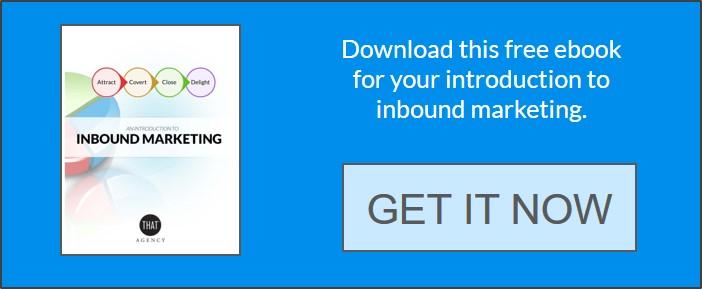Do you remember back when blogging was firmly controlled by moms? Women popped online to vent their frustrations to a community who understood. Blogging has come a long way since then. Now, not only are there bloggers for every field from politics to celebrity gossip, businesses also utilize this platform to help them to capture the attention of potential customers.

As any inbound marketing expert will tell you, blogging is an effective way to help build your business. But why? How does blogging work? How does writing your thoughts on various topics help to gain the attention of potential customers - and more importantly, how does that translate into sales?
Understanding Blogging
While blogging is basically the same beast it was ten years ago, it has become more refined. Where people used the platform to give an opinion or vent feelings, it is now important to utilize keywords and other search engine optimization tactics to both generate better rankings in search engine results pages and to better serve their target audience.
Keywords have been a marketing staple for a number of years - because they work. If you’re selling pressure treated lumber, for example, you’d want to have the keywords, “pressure treated lumber” in your content a specific number of times. This helps your blog post to pop up to the top of the search engine results, which then attracts the attention of potential customers. The customers are originally directed to the article and then have the option of checking out the products you have for sale.
Unfortunately, a large number of business owners do it wrong - or at least inefficiently. If you write simply for the keywords, for example, you will never gain the attention of the readers. And you may find yourself being penalized by search engines for producing “spammy,” or low-quality content. There is a way to write blogs in order to help ensure that your inbound marketing strategy works well for your business goals.
Who to Write For
For starters, never write for search engines. Yes, you have a number of keywords that you have to plug into your blog but you should never write a blog post just to get those keywords out there. Instead, write for your readers.
Let’s stick with the pressure treated lumber analogy. So you own a pressure treated lumber business and you want to write blogs to help drive traffic to your site. How about writing blogs that explain the different options that you offer? Or what about writing blogs that give different building ideas, staining options, or practical how-tos? All of these are types of blog posts that readers want to read. They want to know more about these topics and that will make them click over to the blog.
Once you’ve decided on a relevant, it’s time to do your research and write. The blog post needs to be informative, not just fluff. You want to capture the attention of the reader and you only have about 10 seconds to do it, so it must be a carefully-considered post.
Once you’ve done any necessary research, keep the keywords that you need to incorporate into the post in mind. As you’re writing, try to naturally fit those keywords into the post. If you do it correctly you’ll find that the keywords don’t stand out like glowing neon signs but, rather, they fit into the writing so seamlessly that you don’t notice them.
This can be rather difficult for many people to do, especially those who don’t have a background in writing. That’s one reason why so many business owners hire professional writers or an online marketing agency to craft the blogs for them. These writers know how to incorporate keywords and how to write blog posts that are both enjoyable and informative.
Audience Participation
Another effective way to grab the attention of your blog readers is to encourage audience participation. Encourage readers to post comments and provide feedback. Or ask readers to ask questions they have about the topic and craft posts that answer them.
This strategy is important for two reasons: first because it shows the readers that you actually care what they think. Everyone likes to be heard; it makes people feel valued. And second: it shows off your customer service skills. When you answer the questions in a professional and polite way, readers are able to see how much customer service truly means to you.
High quality blogs can be the difference between making your sales quota for the month or missing it. If you don’t have a high-quality blog, complete with targeted topics, carefully selected keywords, and well-optimized formats, you’re definitely selling yourself, and your business, short. Blogging for inbound marketing can be alot of work. Consider looking at search engine optimization services, as blogging needs consistent attention, and constant posting.





